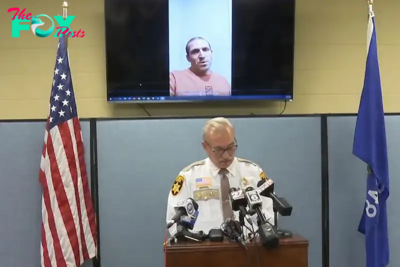US News
Police Separate Pro-Palestinian and Pro-Israeli Protesters at UCLA Amid Clashes
LOS ANGELES — Dueling groups of protesters clashed Wednesday at the University of California, Los Angeles, grappling in fistfights and shoving, kicking and using sticks to beat one another. Hours earlier, police burst into a building at Columbia University that pro-Palestinian protesters took over and broke up a demonstration that had paralyzed the school while inspiring others.
After a couple of hours of scuffles between pro-Palestinian and pro-Israeli demonstrators at UCLA, police wearing helmets and face shields formed lines and slowly separated the groups. That quelled the violence, and the scene was calm as day broke.
Tent encampments of protesters calling on universities to stop doing Business with Israel or companies that support the war in Gaza have spread across the country in a student movement unlike any other in the 21st century, reaching from New York to Texas and California. The ensuing crackdown by police on some college campuses has stirred echoes of the much larger student protest movement during the Vietnam War era.
There have been confrontations with law enforcement and more than 1,000 arrests. In rarer instances, university officials and protest leaders struck agreements to restrict the disruption to campus life and upcoming commencement ceremonies.
The clashes at UCLA took place around a tent encampment built by pro-Palestinian protesters, who erected a line of parade barricades, plywood and wooden pallets at the edge of the camp — while counter-protesters tried to pull them down. Video showed fireworks exploding over and in the encampment.
People threw chairs and other objects and at one point a group piled on a person who lay on the ground, kicking and beating them with sticks until others pulled them out of the scrum.
It was not clear how many people might be injured.
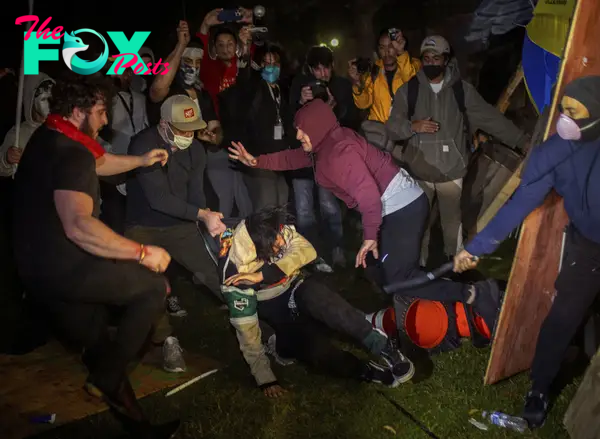
Los Angeles Mayor Karen Bass called the violence “absolutely abhorrent and inexcusable” in a post on social media platform X and said officers from the Los Angeles Police Department were on the scene. Officers from the California Highway Patrol also appeared to be there. The university said it had requested help.
Security was tightened Tuesday at the campus after officials said there were “physical altercations” between factions of protesters.
Late that same day, New York City officers entered Columbia's campus after the university requested help, according to a statement released by a spokesperson. A tent encampment on the school's grounds was cleared, along with Hamilton Hall where a stream of officers used a ladder to climb through a second-floor window. Protesters seized the hall at the Ivy League school about 20 hours earlier.
“After the University learned overnight that Hamilton Hall had been occupied, vandalized, and blockaded, we were left with no choice,” the school said. “The decision to reach out to the NYPD was in response to the actions of the protesters, not the cause they are championing. We have made it clear that the life of campus cannot be endlessly interrupted by protesters who violate the rules and the law.”
A few dozen people were arrested at the building after protesters shrugged off an earlier ultimatum to abandon the encampment Monday or be suspended and unfolded as other universities stepped up efforts to end demonstrations that were inspired by Columbia.
Fabien Lugo, a first-year accounting student who said he was not involved in the protests, said he opposed the university’s decision to call in police.
“This is too intense,” he said. “It feels like more of an escalation than a de-escalation.”
Just blocks away from Columbia, at The City College of New York, demonstrators were in a standoff with police outside the public college’s main gate. Video posted on social media by news reporters on the scene late Tuesday showed officers putting some people to the ground and shoving others as they cleared people from the street and sidewalks.
After police arrived, officers lowered a Palestinian flag atop the City College flagpole, balled it up and tossed it to the ground before raising an American flag.
Brown University, another member of the Ivy League, reached an agreement Tuesday with protesters on its Rhode Island campus. Demonstrators said they would close their encampment in exchange for administrators taking a vote to consider divestment from Israel in October. The compromise appeared to mark the first time a U.S. college has agreed to vote on divestment in the wake of the protests.
Meanwhile, at Northern Arizona University in Flagstaff, police in riot gear closed in on an encampment late Tuesday and arrested about 20 people for trespassing, at least one of whom was thrown to the ground. University officials had warned earlier in the day that students would face criminal charges if they did not disperse.
First-year student Brayden Lang watched from the sidelines. “I still know very little about this coNFLict,” he said. “But the deaths of thousands is something I cannot stand for.”
Police also cleared an encampment at Tulane University early Wednesday.
The nationwide campus protests began at Columbia in response to Israel’s offensive in Gaza after Hamas launched a deadly attack on southern Israel on Oct. 7. Militants killed about 1,200 people, most of them civilians, and took roughly 250 hostages. Vowing to stamp out Hamas, Israel has killed more than 34,000 Palestinians in the Gaza Strip, according to the Health Ministry there.
As cease-fire negotiations appeared to gain steam, it wasn’t clear whether those talks would lead to an easing of protests.
Israel and its supporters have branded the university protests as antisemitic, while Israel’s critics say it uses those allegations to silence opposition. Although some protesters have been caught on camera making antisemitic remarks or violent threats, organizers of the protests, some of whom are Jewish, say it is a peaceful movement aimed at defending Palestinian rights and protesting the war.
Columbia's police action happened on the 56th anniversary of a similar move to quash an occupation of Hamilton Hall by students protesting racism and the Vietnam War.
The police department earlier Tuesday said officers wouldn't enter the grounds without the college administration’s request or an imminent emergency. Now, law enforcement will be there through May 17, the end of the university's commencement events.
In a letter to senior police officials, Columbia President Minouche Shafik said the administration made the request that officers remove protesters from the occupied building and a nearby tent encampment “with the utmost regret.”
New York City Mayor Eric Adams said on MSNBC’s “Morning Joe” that police had to move into Hamilton Hall “for the safety of those children.”
He again blamed outside agitators for the building takeover — an idea Shafik has also raised, though neither provided specific evidence to back up the contention, which was disputed by protest organizers and participants.
Adams, a Democrat who was formerly a police captain, insisted that while the people who entered Columbia’s Hamilton Hall included students, “It was led by individuals who were not affiliated with the university.”
“There is a movement to radicalize young people. And I’m not going to wait until it is done to acknowledge the existence of it,” Adams said. He said that, as mayor, he would “not allow that to happen.”
Pressed, however, to give details on the identities of the “outside agitators” cited by the mayor, officials repeatedly declined to provide details. Police coMMAnders talked generally about tactics demonstrators had used, like using chains to secure doors, saying those strategies must have been taught.
Rebecca U. Weiner, the NYPD’s deputy commissioner of intelligence and counterterrorism, simply said that some of the people present at the campus protests were “known” to the department to have participated in past protests.
Adams also declined, saying revealing those details would be “too sensitive” to an ongoing law enforcement investigation.
The police department’s deputy commissioner for public information, Tarik Sheppard, said 40 to 50 people were arrested at Hamilton Hall and that there were no injuries.
Adams later said that about 300 people were arrested at Columbia University and City College in police crackdowns.
Protesters first set up a tent encampment at Columbia almost two weeks ago. The school sent in police to clear the tents the following day, arresting more than 100 people, only for the students to return.
Negotiations between the protesters and the college came to a standstill in recent days, and the school set a deadline for the activists to abandon the tent encampment Monday afternoon or be suspended.
Instead, protesters defied the ultimatum and took over Hamilton Hall early Tuesday, carrying in furniture and metal barricades.
Ilana Lewkovitch, a self-described “leftist Zionist” student at Columbia, said it’s been hard to concentrate on school for weeks. Her exams have been disrupted with chants of “say it loud, say it clear, we want Zionists out of here.”
Lewkovitch, who is Jewish, said she wished the current pro-Palestinian protests were more open to people like her who criticize Israel’s war policies but believe there should be an Israeli state.
-
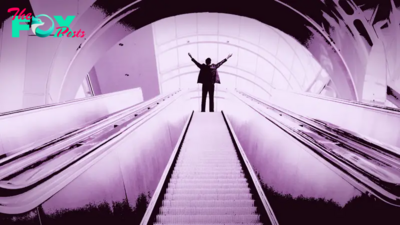
 US News1d ago
US News1d agoHow TIME and Statista Determined the Best Companies and Colleges for Future Leaders for 2025
-

 US News1d ago
US News1d agoWorld’s Best Brands – United States
-
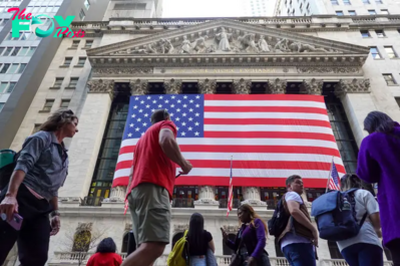
 US News2d ago
US News2d agoFlorida Man Arrested and Charged With Planning to Bomb the New York Stock Exchange
-
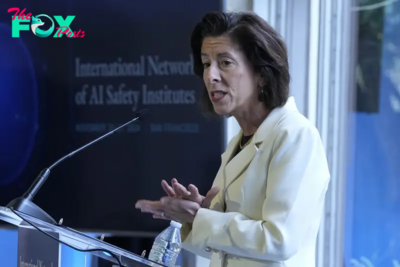
 US News2d ago
US News2d agoU.S. Gathers Global Group to Tackle AI Safety Amid Growing National Security Concerns
-
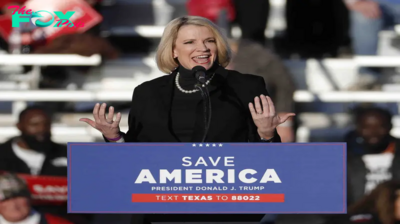
 US News2d ago
US News2d agoTexas Offers Trump Land on U.S.-Mexico Border for Potential Mass Deportations
-

 US News3d ago
US News3d ago4B Is Not the Winning Strategy to Resist the Patriarchy People Think It Is
-
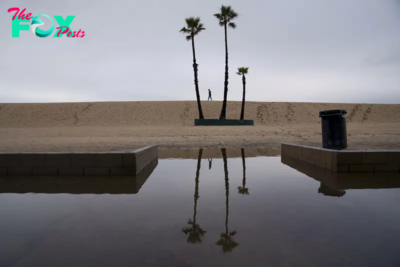
 US News3d ago
US News3d ago‘Bomb Cyclone’ Threatens Northern California and Pacific Northwest
-
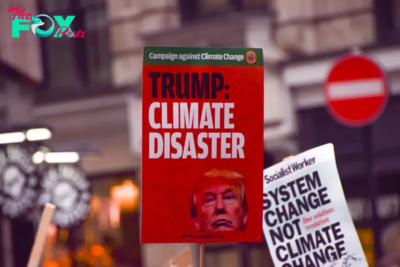
 US News3d ago
US News3d agoClimate Action in Trump 2.0
